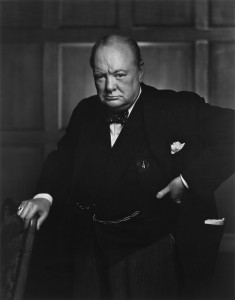Churchillian bullying
Published in Uncategorized
Winston Churchill—knew that alcohol was integral to the preservation of morale on the UK Home Front
In 1938 and 1939, with European conflict on the horizon, Ireland was exporting around 800,000 barrels of beer annually. By 1940 and 1941, with war under way, this figure leapt closer to the million mark. These healthy export figures were thanks to the thirst for Guinness among the rapidly expanding number of men enlisted in the British military and wartime industries.
The British prime minister, Winston Churchill, who himself possessed a seemingly unquenchable thirst for booze, knew that alcohol was integral to the preservation of morale on the UK Home Front. By the end of 1941, however, wheat was becoming seriously scarce in Ireland. In fact, on all fronts it looked as if Éire could not survive the war for much longer as a neutral country. This was because Churchill viewed Irish neutrality as not only self-serving but greedy. The washing up of deformed and bloated bodies on the west coast of Ireland—casualties of the Battle of the Atlantic—was, for Churchill, evidence that the character of Irish neutrality was mercenary rather than virtuous. With one eye trained on control of the Irish ports and the other on the British-shipped supplies that Ireland was eating up, he wrought revenge by subjecting the Irish people to an agonising supply squeeze. In an attempt to coerce Ireland onto the Allied side, Churchill oversaw the throttling of the Irish economy throughout the pivotal year of 1941. Éamon de Valera’s Ireland, still without its own merchant navy and perilously reliant on British supplies, was now subjected to the full force of British economic warfare.
















